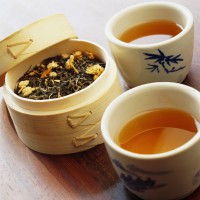Frequent and liberal application of broad-spectrum sunscreen with a minimum SPF has been proven to help prevent skin cancer (click the link for full details), but there are also certain foods that can boost your body’s natural ability to protect itself against skin cancer. If you are a skin cancer or melanoma survivor, adding these foods to your diet may help increase your protection against recurring incidents of skin cancer.

- Grapes have been found to offer strong natural protection against the sun’s damaging ultraviolet rays which are a primary cause of skin cancer. Researchers at the University of Barcelona in Spain discovered that naturally-occurring compounds in grapes called flavonoids protect skin cells from UV radiation.
- Milk Thistle contains the plant extract silibinin which University of Colorado researchers at the Skaggs School of Pharmacy and Pharmaceutical Sciences have found has the ability to kill skin cells that have been mutated by UVA radiation, the type that causes skin cancer. If they do not die, mutated cells typically turn cancerous. Silibinin also protects the skin from sunburn-causing UVB radiation, offering a double-dose of protection.
- Strawberries have photo-protective properties that offer natural UV ray protection, according to a study conducted at the Universita Politecnica delle Marche in Italy. These berries also contain powerful antioxidants that promote cell survival and minimize DNA damage.
- Coffee lowered the risk of non-melanoma skin cancer by 11% in a study conducted by researchers at Wayne State University in Detroit. The more coffee you drink, the greater the protection. In the study, drinking 6 cups of coffee boosted skin cancer protection to 36%. Researchers suspect caffeine kills sun-damaged cells.





